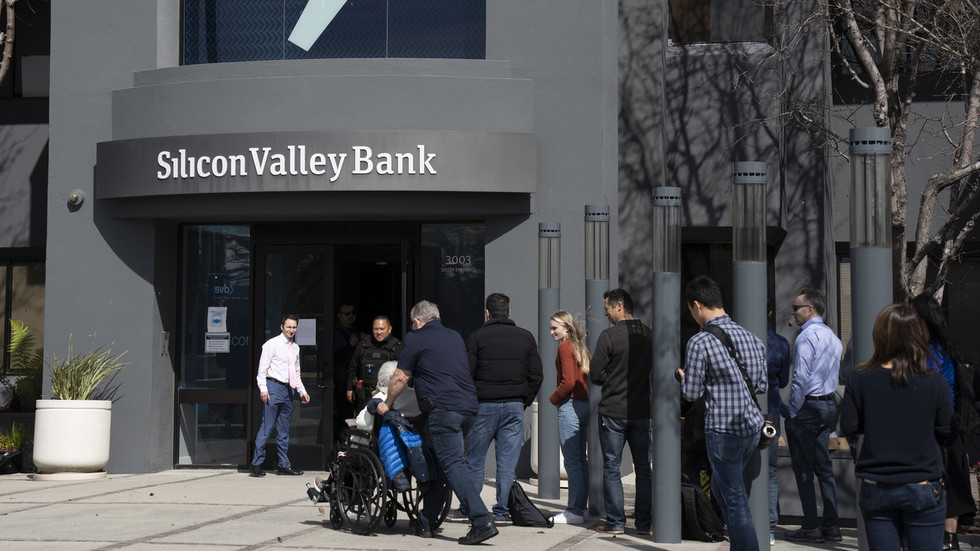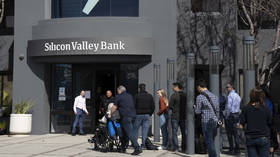
The collapse of Silicon Valley Bank has left investors wondering if their money is safe, Newsweek reports

© Global Look Press / Li Jianguo
Several pension funds in the US and at least two overseas have lost millions of dollars due to investments in Silicon Valley Bank (SVB) stock, Newsweek reported on Tuesday. The collapse of the lender has sent global banking shares plummeting.
Institutions such as the California Public Employees Retirement Fund (CalPERS), the California State Teachers’ Retirement System (Cal STRS), Korea’s National Pension Service (NPS) and Sweden’s Alecta pension fund had reportedly invested in the tech and start-up-focused bank.
CalPERS, which manages the largest public pension fund in the US with over 1.5 million members, had some $67 million invested in SVB and about $11 million in Signature Bank, which was also shut down over the weekend.
Alecta, Sweden’s largest pension fund, overseeing around $104 billion in assets, had around $848.7 million invested in SVB and some $282.9 million in Signature at the time of their failures.

SVB, formerly the 16th biggest US lender, was shut down by regulators last Friday after depositors rushed to withdraw their money amid worries over the bank’s financial health. It has been described as the biggest failure of a US bank since the financial crisis in 2008.
The implosion of the largest lender by deposits in Silicon Valley comes amid hawkish policies pursued by the US Federal Reserve. The regulator has hiked the key interest rate several times over the past few months, raising the risk of asset depreciation on the balance sheets of many financial institutions.
On Monday US President Joe Biden insisted that the American banking system remained safe, and that the government would do “whatever is needed” to protect it against a full-blown crisis.
For more stories on economy & finance visit RT’s business section




